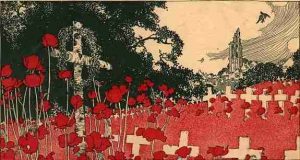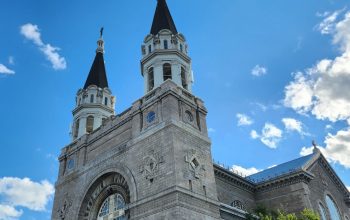Photo Credit: istock
Thoughts of war, loss, and sacrifice in balance with love and peace as we approach Remembrance Day
Joy Fan, Logos Editor
Lest we forget. A term we often hear when remembering those who have fought and serve our nation in the fight for peace. But this premise of remembrance did not first start after war. Deuteronomy 4: 9 reads “Only take care, and keep your soul diligently, lest you forget the things that your eyes have seen, and lest they depart from your heart all the days of your life. Make them known to your children and your children’s children”.
This verse is a reminder of what God had done for the people of Israel, telling them to not forget what had been done for them, and to pass on this remembrance through the generations.
After WWI, the phrase began to be used for Remembrance Day, a reminder of those lost and the sacrifices they made. A reminder to not let such sacrifices go to waste.
But it is difficult to reconcile war and peace. To measure the lives lost against those they protected.
There is war in the Bible. The Bible has many instances and mentions of war – from the War of Nine Kings in Genesis to the Last War (that has yet to happen) in Revelation. In Romans 13:1-7, we learn that God uses those in power to punish evildoers. Genesis 9:6 reads “Whoever sheds man’s blood, by man his blood shall be shed, for in the image of God He made man.”
Human life is God-given and is therefore precious. God tell us not to murder. But would war not be murder?
So, as Christians, should we always support wars carried out by our governments? Should we always be opposed? How do we remember the legacy of war?
My thoughts on this remain as an opinion, a consideration, and at most a suggestion, but not an answer.
To value life is to protect the vulnerable and to punish evildoers. It is not to conquer, to lust for power, to be fueled by wrath. With each war that has passed, and any to be fought in the future, we must think about why they are being fought. History will tell us which wars were “right” and which were “wrong”, but I hope that we will not need to continue to wait in hindsight to understand if we are saving lives and protecting peace or if we are causing destruction and pain. The word of the Bible has been written out for us to read in different forms, languages, and versions. We are given communities to discuss and seek understanding. We, in Canada, are given a vote and a voice to call for peace.
But to remember the gift of peace, we must remember the pain and sacrifice of war. Let us not forget what our forefathers have seen with their eyes. Let us not make the mistakes of the past again.
This Remembrance Day, and for those to come, lest we forget.




